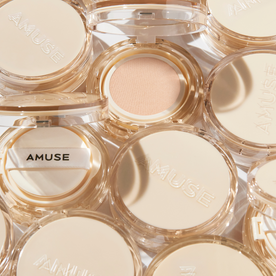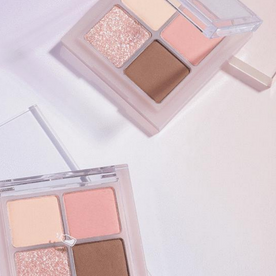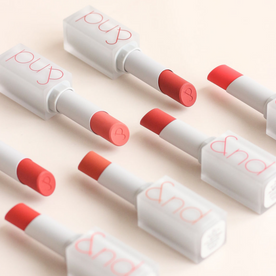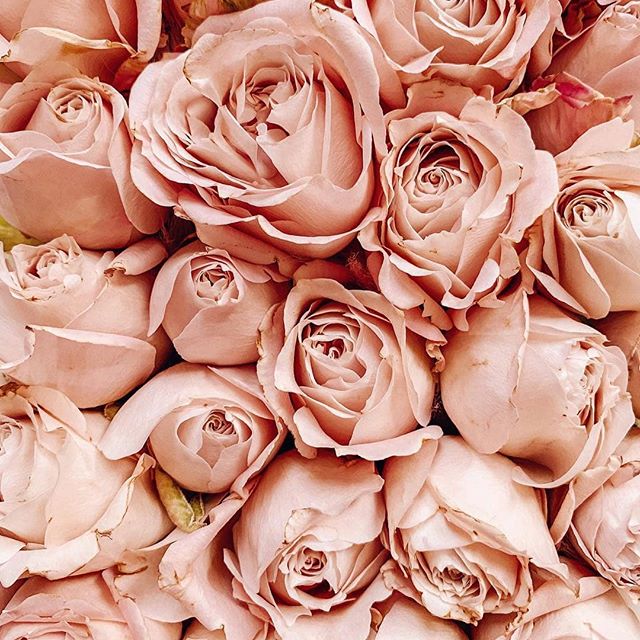7 BEAUTY SINS
It’s early in the year, and a great time to reevaluate how your skincare routine is working for you. Besides using great products, this is a good time to look at forming some new habits that will improve your skin. Or, in some cases, breaking some bad habits that prevent your skin from being as good as it could be.
We’re rounding up seven common beauty “sins” to kick to the curb this year. Before anyone starts grumbling, keep in mind that some of these actually involve doing less. We can all afford to do less of these, so we have more time to do what’s good for us!
1. Over-exfoliating

A lot of people assume that exfoliating is just part of the whatever-step routine that you’re required to do every night to get that perfect “glass skin” effect. If your skin is oily or acne-prone, you might feel that exfoliating more will help clear out clogged pores and prevent acne.
While exfoliating is an important step, over-exfoliating can cause aggravation and damage the skin barrier. Raw, irritated skin can trigger more oil production, and a damaged skin barrier means bacteria can get in easily, causing infections and inflammation. That barrier also protects agains environmental damage, so it needs to be in top form.
Exfoliate only when needed, or around 2-3 times a week. An acid exfoliator (AHA or BHA) can help to buff off dead skin. If your skin is sensitive, you can try gentler PHA’s, or even an enzyme powder. And keep in mind the total amount of exfoliants in your entire routine - if your cleanser, toner, and exfoliant all contain acids, it could be too much at a time.
2. Sleeping With Your Makeup On

You come home super late after an event, collapse into bed, and wake up with a clown-like makeup imprint of your face on your pillow. Sound familiar?
You probably know that makeup clogs pores and can cause breakouts. But did you know that makeup can also trap pollutants? That means all the free radicals that have settled on your face during the day could now be stuck on your skin all night. Heavy makeup can also cause dermatitis, an eczema-like rash caused by irritation. The lash and oil follicles around your eyes can get blocked, leading to uncomfortable bumps on the eyelids called styes. Lipstick tends to draw moisture out, so leaving it on all night can make your lips feel chapped and flakey in the morning.
And even if none of the above happen, makeup just interferes with the cycle of your skin. Nighttime is when your body regenerates and gets rest - as does your skin. Pores release sebum to rehydrate the surface of your skin, cells get shed, and your skin essentially prepares for a new day. Skincare routines help the skin to regulate.
If your routine really isn’t going to happen, clean your face with a makeup wipe and a warm washcloth to remove as much as possible.
3. Not Wearing Sunscreen (or Enough of it)

Yes, you need to wear sunscreen even if you live in the North, it’s cloudy, and the dead of winter.
Wearing sunscreen is one of the best things you can do for your skin because it helps to prevent so many things: hyperpigmentation, sunburns, and premature aging, to name a few. Fading sun spots and trying to reduce the appearance of wrinkles can take months, if not longer, so it’s worth it to take a few minutes to slather on the SPF.
Make sure you use a sunscreen with a PA rating, so you know you’re getting adequate UVA and UVB protection. You’ll also need to use from 1/3 to 1/2 teaspoons on your face and neck to get full protection. This means using makeup with SPF in it won’t be enough, though you can layer it on top. Don’t forget to reapply often!
4. Cleansing - But Only With A Foam Cleanser

You might feel like your water-based foam cleanser already does a pretty good job cleaning your face. However, you’re missing out if you aren’t using an oil-based cleanser first. While it might seem weird to use something oily to make anything cleaner, only an oil-based cleanser will remove oily substances from your skin. This includes some kinds of makeup, sunscreen, excess sebum, and some pollutants. Follow-up with a foaming water-based cleanser to get rid of dirt and sweat.
If the texture of an oil-cleanser isn’t appealing to you, you can also try a balm cleanser. These can also be used as the first step in a double-cleanse, and are typically pretty solid until applied to wet skin, where they emulsify.
5. Trying to “Dry Out” Acne

Regardless of your skin type, there usually isn’t anything good about drying out your skin. If you’re acne-prone or have oily skin, using strong exfoliants and alcohol products might seem like they should suck the excess oils out, but they actually do the opposite. Once your skin barrier starts feeling dry, it will start producing even more oils to compensate. Compromising your barrier can also mean it isn’t able to protect you from bacteria, which can cause more acne.
AHAs and BHAs are great acids for de-clogging pores and removing dead skin, however, they shouldn’t be used more than a few days a week. Using products with a low pH will help in restoring the proper oil balance in your skin barrier without leaving it stripped.
6. Washing With Hot Water

Cleansing your face or washing it in the shower with hot water can feel nice, but it isn’t the best thing for your skin. You might have heard that hot water or steam will “open” pores on your face, and that a splash of cold water will constrict the pores and tighten them up.
Wrong. In fact, pores can do very little expanding and contracting because they don’t really have the right muscles. Whatever effect you think hot water has on your face, it disappears by the time the heat is gone.
Except, that hot water can strip your skin of its natural oils and cause it to become very dry and flakey. Do you know what does expand? All the tiny capillaries under your skin. That’s why some people flush when they get hot. But this means that washing your face with hot water can actually cause it to look red and splotchy, and even aggravate skin conditions, like rosacea.
Cold water tends to not be as damaging, but really, who wants to put cold water all over their face? The best water is warm. Warm enough to not be unpleasant, warm enough to do a good job washing off excess sebum, but not hot enough to irritate or scald.
7. Using All Your Products, All The Time

Just because you have it, doesn’t mean you should to use it. You might be using some version of a multi-step routine, but some steps should be daily, and some shouldn’t. You should double-cleanse every day, typically in the evening so your face is clean for sleeping. A hydrating or balancing toner can also be used every night, as can a nourishing essence. Most people will need a moisturizer, even if it’s a very light one, as well as an eye cream. For the daytime, sunscreen is a must.
A lot of the other steps can be used as needed. Exfoliants should be used a few times a week. Serums, sleeping masks, eye masks, lip treatments, and sheet masks can be used for an extra boost, or if your skin is feeling particularly dry or tired.
Keep in mind the effects of the product. Is your toner hydrating or balancing? Does it contain acids? Is your moisturizer a thick cream, or is it a gel? Look at your lineup as a whole so you can tell how much, in total, you’ll be putting on. Make changes slowly. Suddenly swapping a bunch of products in your routine is a sure-fire way of not knowing if any actually work. Or worse, could mean you can’t identify what is causing a bad reaction.
A skincare routine is only good if it works for you. If you’re just starting out, just pick up a few things a try them out for a few weeks. You may find that you don’t need as much as you think!
While figuring out what to use in your skincare routine is really important, not doing damaging things can be equally important. Some of these things are as simple as turning down the hot water faucet when you wash your face. Leaving yourself a little note on your mirror (“wear sunscreen!”) can help you remember what to do until it becomes a habit. Be patient with yourself and pick one or two things to start with - even a little change can help a lot!















































